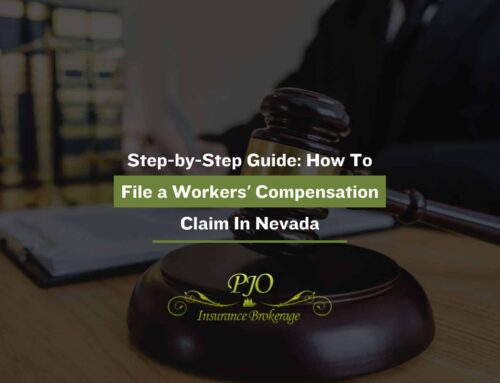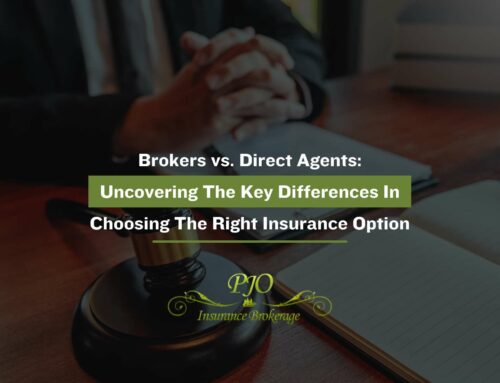Choosing The Right Commercial Property Insurance: Tips & Expert Advice
Few things are more stressful for a business than financial loss and major disruption to operations—both of which can result from unexpected disasters. That’s why commercial property insurance is so important in protecting assets. But what exactly does it cover?
From fire and storm damage to vandalism and equipment breakdown, this type of insurance can provide essential financial relief when physical losses occur. In this article, we’ll explore the different types of property damage typically covered under commercial property insurance, helping business owners better understand their coverage and prepare for the unexpected.
What Is Commercial Property Insurance? Key Coverage Explained
Commercial property insurance is designed to cover physical assets such as buildings, equipment, inventory, and furnishings against damage or loss. This coverage typically includes buildings, equipment, furniture, signage, inventory, and more.
Business income insurance helps cover lost revenue if your business cannot operate due to covered property damage. For example, if your business cannot operate due to fire damage, this coverage can assist with ongoing operating expenses.
Common Property Damage Types Covered By Commercial Property Insurance
Fire & Smoke Damage
Fire can quickly destroy years of work. Most policies cover damage caused by fire and smoke, including repairs to the building and replacement of damaged contents. Cleanup and restoration costs are often included as well.
Weather-Related Damage
Severe weather events like hail, windstorms, and lightning strikes are generally covered. However, most standard policies exclude damage from floods or earthquakes unless specifically added as endorsements.
Water Damage (non-flood related)
Water damage from internal issues—such as burst pipes, plumbing failures, or sprinkler malfunctions—is typically covered. However, gradual leaks or damage due to poor maintenance is often excluded.
Theft & Vandalism
Commercial property insurance usually covers losses resulting from burglary or vandalism. This may include stolen goods, broken locks, or graffiti, depending on the policy terms.
Impact Damage
Damage caused by external impacts (such as a vehicle crashing into your building or a tree falling during a storm) is commonly included in most policies.
Equipment Breakdown
Some policies include coverage for the sudden breakdown of essential systems, such as HVAC units, refrigeration, or production equipment—especially if the failure is mechanical and accidental.
Common Exclusions In Commercial Property Insurance Coverage
While commercial property insurance is broad, it doesn’t cover everything.
One of the most common exclusions is damage caused by natural disasters like floods or earthquakes. These threats are generally not part of a standard policy and require separate coverage. If your business is located in a flood zone or an area prone to earthquakes, it’s essential to purchase additional coverage for these risks.
Wear and tear, maintenance-related issues, and gradual deterioration are also not covered. For instance, if a roof leaks due to old age or a plumbing issue arises from neglect, the damage may be deemed preventable and therefore excluded. Similarly, issues like mold, pest infestations, or rust are typically considered maintenance problems and are not covered by insurance.
Intentional acts of damage or employee dishonesty, such as theft or fraud committed by staff, may be excluded unless a specific endorsement (like crime insurance) is in place. Additionally, losses due to war, nuclear hazards, or government action are usually excluded.
How To Review & Customize Your Commercial Property Insurance Coverage
To make sure your commercial property insurance fully protects your business, it’s important to review your policy regularly and adjust it as your operations evolve.
Start by taking inventory of all physical assets, including buildings, equipment, inventory, and office furnishings. Document their value, age, and function within your business. This helps determine whether your current coverage limits are adequate or need to be increased.
Next, evaluate the specific risks associated with your location and industry. A restaurant will face different hazards than a tech startup or a warehouse. For example, businesses that rely on refrigeration may need enhanced coverage for equipment failure, while retail stores might benefit from added protection against theft or vandalism.
It’s also wise to consult with an insurance broker or advisor who understands your industry. They can identify gaps in your policy, suggest relevant endorsements, and help you navigate complex insurance terms.
Finally, consider how your business might grow. If you’re planning expansions, renovations, or new equipment purchases, update your policy accordingly. And don’t forget to reassess your coverage annually to ensure it reflects current assets and risks.
Consult With The Experts At PJO Insurance Brokerage Nevada
The best way to find the right coverage is to compare quotes from multiple providers—and working with experienced insurance professionals can make that process much easier. At PJO Insurance Brokerage, we have the necessary knowledge and experience to help you choose the right insurance for your company. Contact us now for more help!
PJO INSURANCE BROKERAGE
Email: patrick@pjobrokerage.com
Website: www.pjobrokerage.com
Arizona Location
4103 East Prickly Pear Trail
Phoenix, Arizona 85050
Office: 480-680-9951
California Location
107 Via Estrada, Unit A
Laguna Woods, California 92637
Office: 949-264-0889
Nevada Location
9850 S Maryland Parkway Suite A-5-262
Las Vegas, Nevada 89183
Office: 702-747-5403





